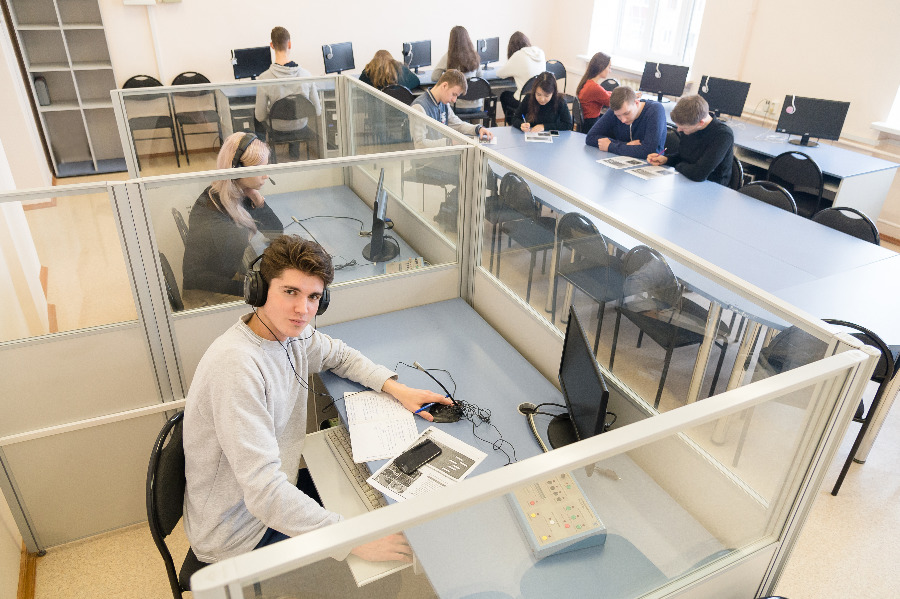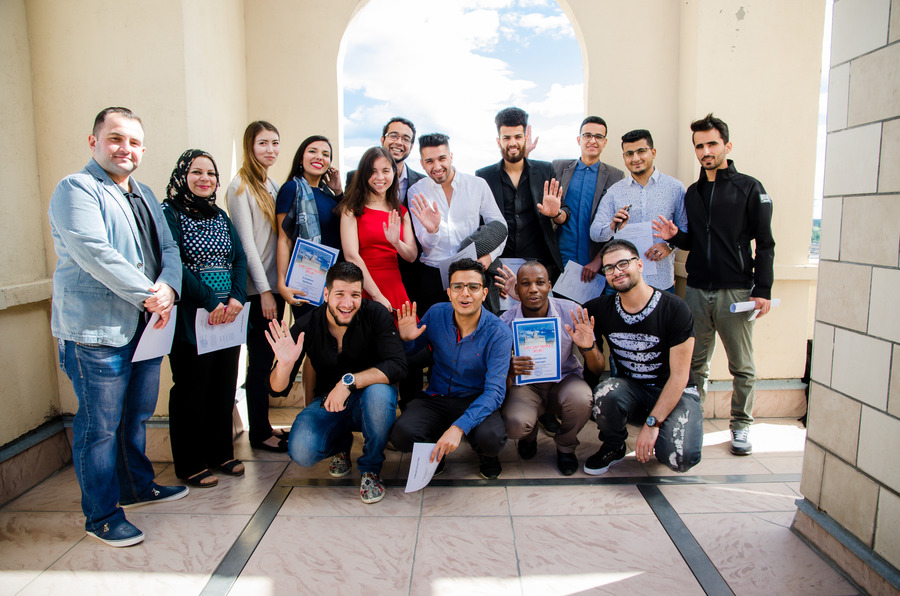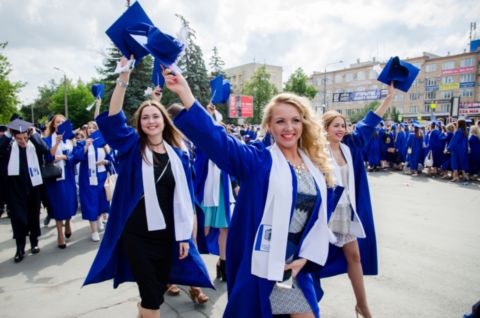Confident command of a foreign language is a must for a good specialist and professional. Managing political processes and conducting election campaigns is a step towards a better future for your country. Analysing and forecasting political processes, building collaboration with partners from other countries is the basis of diplomacy. Do you agree? You can become a specialist in international relations, political science or foreign languages at the SUSU Institute of Linguistics and International Communications.
The Institute of Linguistics and International Communications provides training of the following professionals: interpreters, and specialists of rare professions at the intersection of applied linguistics and information technologies. Graduates become experts in regional studies, international relations, as well as academics and political scientists. Students learn a number of languages according to their choice with native speakers. The process of training is organized using cutting-edge technologies: latest training complexes, multimedia computer labs, simultaneous translation classes, and modern educational literature.

Unique fields of training
Obtaining a high-in-demand diploma of complete higher education in the Translation and Translation Studies. Linguistic Support of Interstate Relations Specialist degree programme allows graduates to perform various types of written and oral translation, including the simultaneous one, to abstract and annotate texts of any subject, to fluently speak two foreign languages, and to use modern information technologies in translation activities. Graduates are prepared to work in international organisations, and to provide assistance at negotiations and business meetings.
In the Linguistics: Translation and Translation Studies and Linguistics: Theory and Practice of Translation Bachelor’s degree programmes students acquire professional competencies necessary for working as a translator. Graduates are also able to work in the field of linguistic education. Interaction skills in two foreign languages will be useful in everyday and professional communication, and the ability to work with text (critical perception, analysis, synthesis and interpretation) is necessary in the context of widespread use of distance technologies.
In the Fundamental and Applied Linguistics Bachelor’s degree programme students learn new approaches to linguistics and can become linguistic engineers: software developers for machine translators, search engines and chat bots. This is one of the most high-in-demand and state-of-the-art specialities at the intersection of IT and linguistics.
“We offer a variety of programmes. The basics of diplomacy, geopolitics, applied analysis of international situations, and economics at all levels of world politics are included in the International Relations: Regional Integration in Modern World Bachelor’s degree programme. Students are trained to work in diplomatic structures, ministries and departments, departments of foreign economic activity of enterprises, expert and analytical departments of the mass media. The Regional Studies: Asian Studies programme is of interest for those who plan to establish international and business contacts with the People's Republic of China, study Chinese and English, political geography and history of China, Chinese literature and business etiquette,” says the Head of the Department of International Relations, Political Science and Regional Studies Liudmila Shestakova.
A new field of training, the Political Management Bachelor’s degree programme, is actively developing. Namely students obtaining education in this programme will be the ones building the future of Russia. They are taught to understand political processes, analyse and predict these, and resolve political differences.

Study abroad
Students of the Institute of Linguistics and International Communications are able to study Chinese and English not only in their classrooms, but also on internships abroad. The Institute offers more than 15 opportunities in Asia, Europe and South America.
The Centre for International Education of the Institute of Linguistics and International Communications organizes collaboration with leading scientific and educational institutions.
“We pay special attention to teaching foreign languages. The main of them are English and Chinese, and after the first year of study one can choose German, French, Spanish, or Italian. We help students achieve a level of English proficiency that can be confirmed by international certificates. Our goal is the IELTS exam. It is now the most high-in-demand one for studying abroad,” says Director of the Institute of Linguistics and International Communications Elena Yaroslavova.
To participate in an exchange program, students should have good academic record and a high level of language. Training lasts for 1 or 2 semesters, all the passed disciplines passed are recognized at SUSU, and participation in academic exchange programs is indicated in the diploma of education.
Students of the Institute of Linguistics and International Communications can take training at Clark University, the USA; Heihe University, China; Zhejiang Ocean University, China; Dalian University of Foreign Languages, China; or at European universities under the Erasmus + program.
The Institute of Linguistics and International Communications offers 28 state-funded places to applicants of the 2021 academic year.




